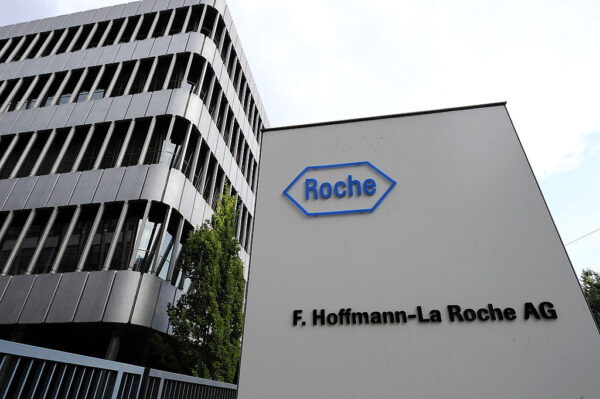
A Roche cancer drug that treats lung cancer with a certain genetic signature now has an additional FDA approval that expands the applications of the blockbuster product.
The drug, Alecensa, is already approved as a first- and second-line treatment for non-small cell lung cancer (NSCLC). The latest approval for the drug permits its use as an adjuvant, a therapy used after the primary cancer treatment (usually surgery) to kill any remaining cancer cells and to reduce the risk of the disease’s return.
Alecensa is a tyrosine kinase inhibitor, a type of drug that block enzymes that drive cancer growth. The Roche drug specifically blocks enzymes that stem from the mutated ALK gene. An estimated 5% of NSCLC cases are ALK positive. Before treatment with Alecensa, the ALK mutation must be detected by a companion diagnostic.

With the Rise of AI, What IP Disputes in Healthcare Are Likely to Emerge?
Munck Wilson Mandala Partner Greg Howison shared his perspective on some of the legal ramifications around AI, IP, connected devices and the data they generate, in response to emailed questions.
The new approval for Alecensa is based on the results of an open-label Phase 3 study that enrolled patients with ALK-positive NSCLC that was surgically removed. For adjuvant therapy, a total of 257 patients were randomly assigned to receive either the Roche drug twice daily or platinum-based chemotherapy. The main goal was to measure disease-free survival.
Adjuvant treatment with Alecensa reduced the risk of disease recurrence or death by 76% compared to the chemotherapy arm, Roche reported. The drug’s safety profile was consistent with previous tests. Warnings and precautions included on Alecensa’s label include liver toxicity, interstitial lung disease, and kidney impairment. The trial results were presented last fall during the European Society for Medical Oncology annual meeting and published earlier this month in the New England Journal of Medicine.
Lung cancer often metastasizes to the brain. Roche noted that an exploratory analysis of the Phase 3 data showed an improvement in central nervous system disease-free survival. The drug’s latest approval gives patients an earlier treatment option, according to Ken Culver, director of research and clinical affairs at ALK Positive, a patient group for ALK-positive patients.
“The approval of Alecensa marks a pivotal moment for people newly diagnosed with early-stage ALK-positive lung cancer, who until now, were not able to receive ALK-specific therapy,” Culver said in a prepared statement. “These patients, who are typically diagnosed at a younger age, often face recurrence and have a higher risk of developing brain metastases than those with other types of NSCLC.”
The class of ALK inhibitors includes Xalkori and Lorbrena from Pfizer, and Zykadia from Novartis. None of them are approved as adjuvant therapies. Roche’s Alecensa won its initial approval as a second-line treatment for NSCLC in 2015. First-line use was approved two years later. Roche reported 1.5 billion Swiss francs (about $1.05 billion) in Alecensa revenue in 2023.
Photo: Giuseppe Aresu/Bloomberg, via Getty Images














